|
“Stay with me, Lord, for I desire to love You very much, and always be in Your company. Stay with me, Lord, if You wish me to be faithful to You. Stay with me, Lord, for as poor as my soul is, I want it to be a place of consolation for You, a nest of love.” These are words taken from the prayer of St. Padre Pio of Pietrelcina after Holy Communion. Padre Pio is known for many supernatural things, including the ability to fly, the ability to bilocate, and having the stigmata of Christ. Those who have taken the time to look into the holy life of Padre Pio will acknowledge his piety, his love for the Holy Eucharist and the Blessed Mother, his great ability to heal people, and his devotion to the Sacrament of Confession. Born in 1887 in Pietrelcina, Italy, Padre Pio entered the novitiate with the Capuchin Franciscans in 1903. Only five years after his ordination, Padre Pio was called into military service with the Italian Army Medical Corps in 1915. Shortly after, the wounds of Christ, the Stigmata, appeared on Padre Pio’s body. The presence of these wounds drew great intrigue and criticism. In the attempts to discover an answer, “Countless experts and doctors looked at his wounds with no clear explanation.” The stigmata, as well as Padre Pio’s great holiness and renown as a confessor, drew pilgrims from all over to visit with him. It is said that Padre Pio was such a prolific confessor that the waiting time for confession with him could stretch for over a week, and he would spend over fifteen hours in the confessional on any given day. Padre Pio is not a holy man who should inspire our lives of faith because he could levitate, bilocate, or see people’s guardian angels. No, Padre Pio is venerated and beloved because of how much he loved the Lord. The Lord granted his servant these graces and gave him these charisms to witness more fully to Christ. It is easy for us to get discouraged because our lives of faith do not include these grand displays of God’s favor. We worry because the saints have such remarkable stories and attributes that we read about while our own lives are so ordinary. But if Padre Pio were still on this earth with us, it is most likely that he would draw your attention away from those miraculous actions and towards our Blessed Mother, the mercy of God in the confessional, and our Lord Jesus Christ in the Eucharist. When my Dad had a serious accident in December 2018, I immediately prayed for St. Padre Pio’s intercession for a miraculous healing. One of my best friends had told me how great Padre Pio’s healing power was, I’d acquired a relic of his, and my devotion was growing. Almost every day, I would pray Padre Pio’s prayer after receiving Holy Communion in the chapel of the hospital or in my Dad’s room. I was drawn to the beauty of the prayer, how it reads like a great ballad, building in intensity and truth. At the same time, the prayer is so simple at its heart: Stay with me, Jesus. Padre Pio knew of his own weakness, the weakness of the human condition, and simply asked our Lord to remain close to him. May this simple yet beautiful prayer be ours today. May, in every situation we find ourselves in, we turn to Jesus as Padre Pio did and with our whole heart implore him, “Stay with me, Lord.” Click here to learn more about St. Padre Pio.
0 Comments
9/7/2021 “Whoever loses his life for my sake will find it”: Proclaiming Christ’s Challenging Call to LoveRead Now
“Then Jesus said to his disciples, ‘Whoever wishes to come after me must deny himself, take up his cross, and follow me. For whoever wishes to save his life will lose it, but whoever loses his life for my sake will find it’” (Mt 16:24-25).
This summer, I’ve been blessed with the opportunity to work as an intern for the Catholic Apostolate Center and collaborate on several catechetical projects with other staff members there. One of these projects was the creation of a new version of From Practicing Catholics to Apostles on Mission, a faith formation course for those who want to delve more deeply into their faith and become more actively involved in the Church. Since many of the program’s participants are young adults, drafting lessons for this course allowed me to reflect on the unique opportunities and challenges that come with speaking to young adults about the Faith. This task always involves a special focus on presenting Church teaching in a way that is clear, approachable, and attractive. But with this task comes a special challenge: how can we avoid the temptation to “water down” the faith or to omit or sugarcoat its more difficult truths? How can we imitate the most perfect preacher, who stated plainly: “Take up your cross and follow me” (Mt 16:24)? One of the Apostles on Mission sessions on which I worked focuses on the universal call to holiness. It seems to me that this teaching is one that we must take care to proclaim in its fullness, especially when speaking to young people: “The Lord Jesus, the divine Teacher and Model of all perfection, preached holiness of life to each and every one of His disciples of every condition…Thus it is evident to everyone, that all the faithful of Christ of whatever rank or status, are called to the fullness of the Christian life and to the perfection of charity” (Lumen Gentium 40). This message shatters the common assumption that holiness is attainable by only a few individuals who perform extraordinary works. It reveals that holiness consists instead in the “perfection of charity” and thus is truly possible for everyone, because although we cannot all accomplish great or miraculous deeds, we can all act with great love. Proclaiming this universal call to holiness is particularly important because—while we hear the commandments over and over—"Love the Lord your God with all your heart…Love your neighbor as yourself”—a very subtle but serious temptation can creep in. Namely, we can be tempted to love only when it is easy, when we find the other person agreeable, when we think they deserve it. But in fact, the perfect love that Christ commands is often difficult. It is difficult to love God daily by resisting temptation, practicing self-denial, and committing ourselves to regular prayer. It is difficult to love our neighbor on a daily basis by treating them with patience, forgiving their faults, and making a generous gift of ourselves to them. Pope St. John Paul II summarized it well in his address to the young people of Boston: “Real love is demanding. I would fail in my mission if I did not clearly tell you so. For it was Jesus—our Jesus himself—who said: ‘You are my friends if you do what I command you’ (Jn 15:14). Love demands effort and a personal commitment to the will of God. It means discipline and sacrifice, but it also means joy and human fulfillment” (Holy Mass on Boston Common, 1979). St. John Paul II not only acknowledges the difficulty of Christ-like love, he also emphasizes that he has a duty to proclaim this difficulty to the Church. He recognized that if we are not warned that “real love is demanding,” we will inevitably discover this reality through our own experience. And if we are not prepared for difficulty, one of two tragic results will likely occur. Finding love demanding, we may be tempted to believe that Jesus didn’t really mean “Be perfect, just as your heavenly Father is perfect” (Mt 5:48) and might ease up and only love when it is easy. Alternatively, we might be tempted to give up in despair, like the rich young man of the Gospel who was taken aback by Jesus’ demanding invitation and “went away sad” (Mk 10:22). Although we must proclaim to young people the difficulty of what Jesus commands, we can also provide them with the hope that enables all Christians to rise to the challenge that lies before them. The first hopeful reminder is this: God is the one who sanctifies us, who always gives us the grace we need to fulfill his call. Cooperating with this grace does require that we are willing to say “yes” to the daily opportunities to undertake the difficult work of loving. But the further hopeful news is that God generously provides hundreds of these opportunities every day. As Pope Francis illustrates in his apostolic exhortation, Gaudete et Exsultate: “This holiness to which the Lord calls you will grow through small gestures. Here is an example: a woman goes shopping, she meets a neighbour and they begin to speak, and the gossip starts. But she says in her heart: ‘No, I will not speak badly of anyone.’ This is a step forward in holiness. Later, at home, one of her children wants to talk to her about his hopes and dreams, and even though she is tired, she sits down and listens with patience and love. That is another sacrifice that brings holiness. Later she experiences some anxiety, but recalling the love of the Virgin Mary, she takes her rosary and prays with faith. Yet another path of holiness. Later still, she goes out onto the street, encounters a poor person and stops to say a kind word to him. One more step.” A third word of hope: Every time we take one of these “steps”—loving even when it is hard—we train our heart, like runners training for a marathon. With each step, our heart grows stronger, and it becomes easier to love the next time. One more message of hope can be found at the end of St. John Paul II’s words that I quoted before: “[Love] means discipline and sacrifice, but it also means joy and human fulfillment” (my emphasis). This message was closely echoed by another great saint of modern times: St. Teresa of Calcutta. She wrote: “We should ask ourselves, ‘Have I really experienced the joy of loving?’ True love is love that causes us pain, that hurts, and yet brings us joy. That is why we must pray and ask for the courage to love.” When we consider the words of both saints, there initially seems to be a contradiction—how can love cause both pain and joy? But this is ultimately the same paradox that lies at the heart of the Gospel: Christ promises that only he who “loses his life for my sake will find it” (Mt 16:25)—that is, only if we “lose” our life in self-giving can we find lasting fulfillment in this life and eternal happiness in the next. It takes courage and great faith to believe in this promise of Christ, but there are two places we can find evidence to support it. The first is in the witness of St. John Paul II and St. Teresa of Calcutta themselves, along with the countless other saints whose lives witnessed to the truth of their words. These men and women loved with total generosity even when it was difficult; they faced many additional sufferings, and yet they were filled with joy—a joy so radiant and constant that it could not have been a mere appearance. We can also find evidence in our own experience that proves the opposite side of this truth: when we have tried to fill our hearts and lives with things that aren’t God, we have all experienced how quickly happiness flees and gives way to emptiness and sorrow. By witnessing the joy of the saints and recalling our own sorrow when we deviate from the path they trod, we can trust that over time, as we continue the demanding work of striving to love as Christ loved, He will gradually reshape our hearts and help us experience the joy that sacrificial loving brings. In summary, when we share the Gospel with young people, we must take care to speak the fullness of the truth and tell them of both the joy and suffering that accompanies the lives of those who follow Christ. By doing so, we help them avoid the fate of those who excuse themselves or fall into despair when they feel the weight of the cross. But even more, doing so helps them find the narrow path that leads to the life they most desire, “life in its fullness,” as St. John Paul II describes: “Jesus does not ask us to give up living, but to accept a newness and fullness of life that only He can give. The human being has a deep-rooted tendency to ‘think only of self,’ to regard one’s own person as the center of interest and to see oneself as the standard against which to gauge everything. One who chooses to follow Christ, on the other hand…looks on life in terms of gift and gratuitousness, not in terms of conquest and possession. Life in its fullness is only lived in self-giving, and that is the fruit of the grace of Christ: an existence that is free and in communion with God and neighbor” (Message for World Youth Day XVI, 2001). It has been a great gift to collaborate with the Catholic Apostolate Center in their efforts to help others recognize and respond to God’s call to holiness, to the fullness of life. May all of us—of every age—heed this call. May we have the courage to proclaim the fullness of the truth, the strength to love when it is difficult, and the confident hope that doing these things will bring the profound peace and joy that we seek.
Sometimes sanctity feels like an impossible goal. I can admire and love the holiness of the saints but, like the achievement of the professional athlete or Nobel prize winner, I know that it is not something readily within my reach. It seems to be a rare gift or a special privilege, so it is easy to console myself with the seemingly humble admission of how far I fall short of such a lofty ideal. Being a saint is a gift and a privilege, so we would be right to attribute such holiness to God’s grace! But drawing closer to the saints themselves reveals something more about holiness and the quiet daily struggle of love. Saint John Eudes, whose Memorial we celebrate today, is remembered chiefly for his devotion to the hearts of Jesus and Mary. But this devotion wasn’t an abstract concept or merely a personal predilection. It was a concrete way of expressing God’s transformation and transfiguration of humanity through the event of the Incarnation. And in the image of the heart, the fullness of human sanctity is revealed. Saint John Eudes, like so many other saints, wrote many wonderful spiritual works. What stands out in his thought, however, is the intertwining of a meditation upon the holiness of Christ’s life and the necessary holiness of life to which all Christians are called. If I feel intimidated by the holiness of the saints, then I feel infinitely more intimidated by the challenge of truly imitating Jesus’ life! And yet that is exactly what Saint John Eudes encourages us to do. Union with Christ through faith and the sacraments is not a nice sentiment or empty metaphor, but rather a concrete connection to the reality of his Incarnate life. Taking inspiration from Saint Paul’s affirmation that “in my flesh I am filling up what is lacking in the afflictions of Christ on behalf of his body, which is the Church,” (Col 1:24), Eudes argues that every Christian is joined to Christ’s life in a similar way through grace: “Thus, when a Christian prays, he continues and accomplishes the prayers of Jesus Christ. When he works, he continues and accomplishes Christ’s laborious life. When his relations with his neighbor are inspired by charity, he continues and accomplishes Christ’s public life. When he takes his meals or his rest in a Christian fashion, he continues and accomplishes the subjection to these necessities that Christ willed to have in Himself.” (The Life and the Kingdom of Jesus in Christian Souls, pg. 6) Like Saint Paul, Saint John doesn’t mean to imply any deficiency in Christ’s earthly life or the efficacy of his Passion, Death, and Resurrection. Rather, he reminds us that Jesus’ true humanity sanctifies ours in a radical and comprehensive way. As the Catechism of the Catholic Church puts it, “Christ enables us to live in him all that he himself lived, and he lives it in us” (§521). Does this make holiness seem any more achievable? Saint John Eudes, while still recognizing the difficulty, saw it as a means of drawing the ordinary in our lives (prayer, work, meals) into the realm of Christ’s true human life of ordinary holiness. In his further meditations and exercises, Eudes encourages all Christians to sanctify every action of each day, each week, each month, and each year. Every moment of our lives is changed by Christ’s life, because Christ is truly human and truly divine, the “Word made flesh” in all the specificity of what it means to “dwell among us” (John 1:14). Every moment of our lives is potentially transfigured because God has lived our life even in its quiet struggles and hidden joys. This is sometimes hard for me to remember, when life seems too complicated, too busy, or too ordinary. But drawing close to the saints reminds me of their humanity and, through them, the humanity of our Lord Jesus Christ. As Saint John Eudes teaches us, this shouldn’t be a way of excusing our sinfulness and limitations as merely human. Instead, it should be a way of seeing even the least things in ourselves as a continuation of Christ’s transfiguring love.
“It is well done. Turn me over!”
No, that’s not a joke that starts “what did one steak say to the other steak?” Those are some of the final words attributed to St. Lawrence, deacon and martyr, whose feast we celebrate today. St. Lawrence was a Deacon during the pontificate of Pope St. Sixtus II and, along with some other clerical companions, was martyred just days after Pope Sixtus II himself was put to death. St. Lawrence has two great stories attributed to him by tradition. Lawrence, being a deacon, was entrusted with the care of the poor and the material goods of the Church. Knowing that he would likely face a fate similar to Pope Sixtus II, Lawrence began to give away all of the money that he had to the poor. He even went so far as to sell sacred vessels to give the money to the poor. When the prefect of Rome heard of what Lawrence was doing, he ordered him to bring the money and goods that he had to him so that the prefect could be rich. Lawrence heeded the request of the prefect, asking for some time to gather the riches to give over. When he returned, he brought with him the sick, orphaned, widowed, and more, presenting them to the prefect. He famously said to the prefect, “these are the treasure of the Church.” As you can imagine, this action did not endear Lawrence to the prefect and he ordered Lawrence killed—which leads to the second story. As is the story of many early martyrs, the death that Lawrence was to endure was not a simple one. The prefect, angry as he was, had a massive grill prepared upon which Lawrence’s body was placed. Imagine the pain of searing hot metal and the flames beneath it. Instead of struggling to be free or trying to convince the prefect not to kill him, Lawrence famously said after some time, “It is well done. Turn me over!” Other than funny anecdotes, what does the life of St. Lawrence have to teach us? It teaches us two very important lessons. The first lesson is this: the wealth of the Church is not in its gold reliquaries, its beautiful art, or even in the collection basket, but is in the poor, the hungry, the oppressed—the children of God for whom we should care the most. It is easy to get caught up in the societal reaction which looks upon those most in need as those whom we should avoid. St. Lawrence reminds us that these people—the poor, the hungry, the oppressed—are not a body of persons, but are individual people. They are people, not for us to take advantage of or look upon with scorn, but people who are the riches of the Church. St. Lawrence reminds us to always look at the poor, hungry, and oppressed as such and to love them with all of our hearts. The second lesson is to live with joy overflowing. Imagine the pain and suffering which Lawrence endured in his martyrdom, yet he responded with humor. There is no way that would have been possible without a life of joy which can only come from a deep and intimate relationship with Jesus Christ. We will always face hardship, Christ assured us of that, but how do we respond to that hardship? We are not called to be exactly like Lawrence, to respond with humor when we have no humor to muster, but to live with joy which can only come from a deep relationship with Christ. St. Lawrence, deacon and martyr, pray for us! To learn more about St. Lawrence, please click here.
I recently learned that a medical condition (that I have suffered from for most of my life) might be greatly improved or even completely healed via a major diet overhaul. Although I may one day be able to reintroduce some foods back into my diet, it is difficult for me to face giving up many of my favorite foods for several months, years, or even forever.
On reflecting and praying about my reluctance and fear about this daunting task, I realized that my personal struggle with my physical health is analogous to the human soul’s struggle with concupiscence and sinfulness. My body has been growing progressively sicker over nearly two decades, with symptoms that none of my previous doctors had been able to explain. But I have been so sick for so long that there were times (usually in between the worst flare ups) that I convinced myself everything was manageable, or even that it was all totally fine and normal. But during the worst flare ups—whose pain or duration I could never anticipate and for which I never had any warning—I would be in so much pain that I could sometimes barely function. In a similar way, mankind clings to sin. Why do we hesitate to put aside the things that keep us from God? Why is it so hard for us to simply reject our sins and turn to a deeper relationship with our loving Creator? Like me with my medical condition, I think we can become so used to our vices—to how it feels for our souls to be sick from repetitive sins—that we convince ourselves that turning back to God and casting aside our sinful habits is too difficult and would not make us any more joyful or free. Choosing the healthier or holier life is difficult. Establishing good habits always seems to take more effort than establishing or sliding back into bad ones. Of course, it does not help that temptations abound in the temporal world; inflammatory foods are the easiest and cheapest things at the grocery store and are laced throughout restaurant menus. Likewise with temptations to sin: the ubiquity of screens and social media, which can create barriers to personal relationships and wipe out our daily prayer times; the constant push to place religious devotion with devotion to ‘things’, the pressure to ignore the natural moral order in favor of the self and the self’s pleasures. Because we are a fallen race, we often seem incapable of rejecting short-term pleasure in favor of long-term gain. I know my health will drastically improve if I permanently remove the inflammation-triggering causes from my life, but somehow the very process—the sacrifice itself and the initial withdrawal I will surely feel as I miss that old diet—seems like too much to bear. How can I ever survive without donuts after Mass sometimes? How can I possibly stop eating cheese? Maybe I can just take a pill instead and keep on living my life how I want to. It’s like this with our vices, too: How can I give up this behavior or this selfishness that is rooted in my heart? I know I should put down my phone and pray, but I’ll do that in five minutes (or thirty, or sixty). There isn’t really any need to change my lifestyle to be a stronger follower of Christ, is there? And besides, wouldn’t my hundreds of Instagram followers miss me if I stop posting photos five times a day? Entering into a deeper relationship with God demands radical changes of us. I eventually realized that my physical health is also tied to my spiritual health. God gave me this unique body, fearfully and wonderfully made in His own image, and it is my responsibility to care for that gift by treating it well—by seeking to heal it in the ways that are available to me and to which God has slowly led me over the past ten years. If I know that my soul is sick—and that more stuff, more screen time, and more licentiousness are not going to heal me—should I not put my sinfulness or woundedness into the hands of the God who will heal me? Maybe it will take years for my body to heal. Maybe there are some things that I will never eat again, while others I will be able to tolerate on occasion or even fully reincorporate into my daily diet. But, in physical as well as spiritual health, I won’t ever find out what it feels like to be healed unless I commit to getting rid of the things that are holding me back. Ever struggle with attempting to find God in your daily life? Do you ever feel that you are just so busy that engaging in a personal relationship with the Lord seems out of the question? Do you struggle in attempting to recognize how God is acting in your life, at work, or in the classroom? I promise, you are not alone. Many of us struggle with finding God not only in the ordinary, but also in our busy lives. Different saints, such as St. Francis de Sales, even recognized how at times it can be challenging to find God’s presence in the ordinary. Surprising right?! Sometimes, it seems so difficult to find God in the mundane or in the office. Yet, this is exactly where we can find God’s presence—in the ordinary! St. Francis De Sales, a Doctor of the Church and inspiration of the ever popular Salesian Spirituality, wrote in his famed Introduction to the Devout Life that “It is an error, or rather a heresy, to wish to banish the devout life from the regiment of soldiers, the mechanic’s shop, the court of princes, or the home of married people… Wherever we may be, we can and should aspire to a perfect life.” St. Francis De Sales advocates the notion that everyone is called to be in relationship with God no matter their specific state in life. For St. Francis De Sales, the soldier, the mechanic, the government officials, and the married couple—any lay person—can find God in the ordinary. God meets each of us were we are; his presence is not restricted to a building. Nevertheless, what are some practical ways in which we can find God in the ordinary? Again, St. Francis de Sales has more wisdom for us from his Introduction to the Devout Life, writing that “occasions do not often present themselves for the exercise of fortitude, magnanimity, and great generosity, but meekness, temperance, integrity, and humility are virtues that must mark all our actions in life.” When we refrain from boasting about our accomplishments in the office or when we refrain from lying to our professor regarding a string of absences from class, we are encountering God in the ordinary. When we simply take a minute in the beginning of the morning and offer our day to God, we are encountering God in the ordinary. When we take a moment to recognize a coworker’s kindness to a stranger or a fellow student’s concern for a student falling behind in class, we are encountering God in the ordinary. Encountering God is not solely done on in the pews or on the mountaintop. Instead, we can encounter God in the ordinary, in our everyday life. To learn more about seeing God in the ordinary, please visit our Prayer Resources page by clicking here. On December 8th, the Solemnity of the Immaculate Conception of the Blessed Virgin Mary and the 150th anniversary of the proclamation of St. Joseph as patron of the universal church, Pope Francis proclaimed the Year of St. Joseph. To celebrate this historic moment in the universal Church, the Catholic Apostolate Center has launched a series exploring the depth and richness of fatherhood. We will feature one post a month from fathers at different stages of fatherhood, godfathers, spiritual fathers, priests, and grandfathers throughout the year. We invite you to join us this year in learning more about masculinity, fatherhood, the dignity of labor, and the importance of faithfulness to the will of God. As we continue in our life of faith, we invite St. Joseph to be a father to each one of us, guiding us ever closer to his adopted son, Jesus. May he teach us how to be faithful disciples constantly adoring the face of Christ. To kick off our fatherhood series, I’d like to share some powerful quotes from Pope Francis’ Apostolic Letter, Patris Corde, that will help us more deeply come to know the quiet carpenter who helped raise the Son of God. 1. “Each of us can discover in Joseph – the man who goes unnoticed, a daily, discreet and hidden presence – an intercessor, a support and a guide in times of trouble. Saint Joseph reminds us that those who appear hidden or in the shadows can play an incomparable role in the history of salvation.” Throughout salvation history, God has repeatedly chosen the least likely of candidates to accomplish his will. Moses was slow of speech. Peter was a fisherman. Paul was a persecutor of the Church. Joseph was a carpenter. What matters not to the Lord is our status in life, our accolades, our prestige, or our mightiness, but simply that we do His will. St. Joseph modeled that in every moment of his life—from accepting Mary into his home, to naming his Son Jesus, from fleeing to Egypt, to returning to Nazareth. St. Joseph, teach us obedience and humility. 2. “The greatness of Saint Joseph is that he was the spouse of Mary and the father of Jesus. In this way, he placed himself, in the words of Saint John Chrysostom, 'at the service of the entire plan of salvation.'[7]” Joseph was a father in every sense of the word. He guided and protected his family, provided for them, and loved them with tender affection. Everything he did was for the well-being of Mary and Jesus. He is a strong servant leader—one that all men can learn from. To be a father is a great blessing and gift. St. Joseph, help us to be servant leaders. 3. "Saint Paul VI pointed out that Joseph concretely expressed his fatherhood 'by making his life a sacrificial service to the mystery of the incarnation and its redemptive purpose. He employed his legal authority over the Holy Family to devote himself completely to them in his life and work. He turned his human vocation to domestic love into a superhuman oblation of himself, his heart and all his abilities, a love placed at the service of the Messiah who was growing to maturity in his home.'[8]" Just as faith without works is dead, so too is love devoid of service. St. Joseph did not love solely with his words, but by his actions—which is likely why Scripture does not recount any of his speech—with St. Joseph, there was no need. His entire life was a song of love for the Holy Family and for God. St. Joseph, teach us to love as you loved. 4. "Joseph saw Jesus grow daily 'in wisdom and in years and in divine and human favour' (Lk 2:52). As the Lord had done with Israel, so Joseph did with Jesus: he taught him to walk, taking him by the hand; he was for him like a father who raises an infant to his cheeks, bending down to him and feeding him (cf. Hos 11:3-4)." So often, we confuse holiness with otherworldliness. Perhaps we imagine celestial music, bright light, and the presence of angels accompanying the saints wherever they went. But to be holy is to be most fully human—at St. Iraneus said, “The glory of God is man most fully alive.” True holiness means living out our vocations fully, and that includes family life. St. Joseph would have fed Christ and eaten with him, he would have helped him get dressed or tied his sandals, he would have played games with him, sang with him, and worked with him. To be holy is not to be out of touch with reality. St. Joseph was not above the normal duties of fatherhood. St. Joseph, teach us to live out our vocations fully by taking Christ by the hand. 5. "Even through Joseph’s fears, God’s will, his history and his plan were at work. Joseph, then, teaches us that faith in God includes believing that he can work even through our fears, our frailties and our weaknesses. He also teaches us that amid the tempests of life, we must never be afraid to let the Lord steer our course. At times, we want to be in complete control, yet God always sees the bigger picture." A life of holiness does not mean one devoid of fear or suffering. This was true even for Joseph and Mary. What makes Joseph such a model for us is not that he was fearless, but that he trusted in God. He did many things that were difficult and probably not what he had intended for his life, but he trusted and obeyed. He hears the will of God and acts. Later on, Christ himself does not promise a life without the cross, but that He will always remain with us as we carry our crosses. It is when we give God our fears, frailties, and weaknesses that He can transfigure us for His glory. St. Joseph, teach us to trust God. 6. "During the hidden years in Nazareth, Jesus learned at the school of Joseph to do the will of the Father. That will was to be his daily food (cf. Jn 4:34)." The home of the Holy Family was a domestic church in which virtue flourished and sanctity was cultivated. As the head of the family, Joseph served as a priestly figure and an earthly shadow of God the Father. Joseph would have been a man of Scripture who obeyed God’s commandments and lived a life of authenticity and virtue. How beautiful it is to think that Jesus “learned at the school of Joseph.” St. Joseph, teach us to do the will of the Father. 7. "Just as God told Joseph: 'Son of David, do not be afraid!' (Mt 1:20), so he seems to tell us: 'Do not be afraid!' We need to set aside all anger and disappointment, and to embrace the way things are, even when they do not turn out as we wish. Not with mere resignation but with hope and courage. In this way, we become open to a deeper meaning. Our lives can be miraculously reborn if we find the courage to live them in accordance with the Gospel. It does not matter if everything seems to have gone wrong or some things can no longer be fixed. God can make flowers spring up from stony ground. Even if our heart condemns us, 'God is greater than our hearts, and he knows everything'(1 Jn 3:20)." The words of God to Joseph echo once more for us today: do not be afraid! Fear, stress, and confusion are all normal to the human condition. God is not asking us to erase these feelings from our lives, but to give them over to Him. He is calling us to abandon ourselves to His loving providence and not become imprisoned by these emotions. St. Joseph may have feared for his family’s safety and well-being, but he was not consumed by fear or paralyzed by doubt. Pope Francis calls him, “creatively courageous.” “In the face of difficulty,” he writes, “we can either give up and walk away, or somehow engage with it.” Joseph engaged. St. Joseph, teach us to abandon ourselves to God. 8. "Work is a means of participating in the work of salvation, an opportunity to hasten the coming of the Kingdom, to develop our talents and abilities, and to put them at the service of society and fraternal communion. It becomes an opportunity for the fulfilment not only of oneself, but also of that primary cell of society which is the family." Work is a part of God’s plan for humanity. What was not part of God’s plan was toil or fruitless labor that does not uphold mankind’s dignity. Prior to the Fall, Adam was called to till and cultivate the land. Christ has redeemed work once again by enabling us to offer all that we do and unite it to His sacrifice on the Cross. Our work can now have immeasurable meaning and be a means of sanctification. Joseph is also known as St. Joseph the Worker. He worked as a carpenter throughout his life and in this way provided for his family. When we work for others, when we work well and faithfully, our work can be a means of building up the Body of Christ and loving or serving one another. St. Joseph, teach us the dignity of human labor. 9. "Fathers are not born, but made. A man does not become a father simply by bringing a child into the world, but by taking up the responsibility to care for that child. Whenever a man accepts responsibility for the life of another, in some way he becomes a father to that person." Fatherhood is so much more than physical procreation. It involves the cultivation of family and of the human person. It means providing for the spiritual or physical well-being of others. For this reason, priests are also called “Father.” They represent our Heavenly Father and make manifest His graces poured out in the sacraments. They accompany us on our spiritual journeys and act as shepherds guiding us towards holiness. Godfathers, too, play an important role in society by serving as models of holiness for their godchildren and praying and interceding on their behalf. St. Joseph, teach men true masculinity and authentic fatherhood. 10. "The Church too needs fathers." Not only do families need fathers and stable father figures, the Church and world do as well. Authentic fatherhood is an essential part of God’s plan for humanity and is a part of God’s very identity. Society cannot exist and thrive without healthy and holy fathers. God chose to enter the world through a family and was obedient to his foster father Joseph while under his care. Scripture tells us that he "was obedient to them (Joseph and Mary).” St. Joseph, help raise up strong and loving fathers and father figures in our Church and society. As we journey together in the Year of St. Joseph, let us pray to this powerful intercessor using the prayer of Pope Francis, Hail, Guardian of the Redeemer, Spouse of the Blessed Virgin Mary. To you God entrusted his only Son; in you Mary placed her trust; with you Christ became man. Blessed Joseph, to us too, show yourself a father and guide us in the path of life. Obtain for us grace, mercy and courage, and defend us from every evil. Amen. It seems that each day we check the news to discover that another politician, producer, actor, or celebrity figure is being exposed for scandal or abuse. Many of those who have for years been hailed as the main influencers of public opinion, policy, and taste have in a stunningly short span of time lost support or credibility. Many of those who were on top of the world have been, we could say, deflated and dethroned. I have been pondering this lately as the Church prepares to celebrate the Solemnity of the Ascension of the Lord. Each Sunday in the Nicene Creed, we profess Christ’s ascension, “He ascended into heaven and is seated at the right hand of the Father.” The ascension is recounted at the beginning of the Acts of the Apostles (Acts 1:6-12). Theologically, we do not envision Jesus ascending like a balloon into the sky, but a king ascending a throne. The Feast of the Ascension celebrates the exaltation and enthronement of Jesus as King and Messiah at the right hand of God the Father in heaven. As many of us may be scientifically literate and democratically-minded citizens of the twenty-first century, we may think all this talk of thrones and kings and heaven may seem like it belongs to a world that has long passed away. But if our recent headlines have proven anything, what has not passed away is the perennial pursuit of power and our tendency to underestimate our willingness to use it in potentially harmful and self-aggrandizing ways. Power in and of itself is not an evil thing, and watching people fall publicly is not a cause for celebration. I think instead the present reality invites us to pause and reflect on—in light of God’s reality—the pursuit and exercise of power both in society and in our own lives. In truth, power is not something that belongs only to the powerful. Power exists across any human relationship: husband and wife, parent and child, teacher and student, boss and employee, and the list is endless. We are influenced vertically by our superiors and horizontally by our peers. Ideally, we work together to achieve the common good and common goals by sharing and exercising power in the right doses and ways. But I think if we’re honest, we all have our own way of being out of balance, tipping the scales. So, what does this all have to do with Jesus, who we call the All-Powerful One? As exalted King and Messiah, Jesus overthrows the love of power with the power of love. The Ascension is not a power grab that Jesus will use to control people and outcomes. Rather, we hear Jesus tell the disciples that once he has taken his seat on God’s throne, “you will receive power when the holy Spirit comes upon you, and you will be my witnesses in Jerusalem, throughout Judea and Samaria, and to the ends of the earth” (Acts 1:8). As disciples, we are not separated from Christ by a glass ceiling. Yet as disciples, we have to be careful where and how we exercise this power given to us in the name of Jesus. One of the images in Scripture of the Holy Spirit is fire. It is a great metaphor for power. Our stewardship of God’s power can bring light and warmth, yet it can also burn if used irresponsibly. I suspect today that much of what compromises our evangelizing message of Jesus’s kingship stems from the ways Christians have abused earthly power in the name of God. The Gospel and St. Paul preach a radically different alternative: the conviction that our human exercise of power more fully manifests Christ when it is surrendered than when it is wielded. So, I propose instead: What happens when we dare to profess Jesus enthroned and exalted, to receive the power of his Holy Spirit, and then lay it down in the service of the Gospel? Question for Reflection: How is Christ’s example of kingship and power different from what we see in the world? As we celebrate the Nativity of our Lord Jesus Christ at Christmas, I find myself grateful that the Church has established the liturgical calendar in such a way as to help shake us out of our spiritual complacency. The high-points of the Church year—and the larger Christian experience— are referenced so much in our Faith that we may sometimes find ourselves on spiritual autopilot. Before we know it, we might find that solemnities are immediately upon us (or past us), and we feel that we could have benefited from more spiritual preparation. This year, I was looking for a clear and direct theme I could really focus on as Christmas approached. I came across some writings of Venerable Servant of God Fulton Sheen that called to mind certain details of Scripture that my eyes (and spiritual life) might typically gloss over. Recalling the helpless innocence of the Christ-child ready to be born of Mary, Sheen related Mary and Joseph’s plight in searching for late-night shelter in Bethlehem to the lack of hearts open to God which can offer the King of Kings and Lord of Lords a place to dwell and reign:
[W]hen finally the scrolls of history are completed down to the last word of time, the saddest lines of all will be: ‘There was no room in the inn.’ The inn was the gathering place of public opinion, the focal point of the world’s moods, the rendezvous of the worldly, the rallying place of the popular and the successful. But there’s no room in the place where the world gathers. The stable is the place for outcasts, the ignored, and the forgotten… The lesson is: divinity is always where you least expect to find it. So the Son of God-Made-Man is invited to enter into His own world through a back door.[1] With all the seasonal emphasis on gifts and personal generosity, I am especially touched by that first line and the reality that there was no room made available for the arrival of the long-awaited Son of God. How often do we hear calls to be watchful and ready for the Second Coming of Christ; that is, to be repentant of sin and committed to pursuing holiness? This preparation is what the first part of the Advent season is all about. When we are called before the Final Judgement seat of the Most High, and God Himself shows us what we did or did not do for Him[2] in our earthly encounters with the people in our lives, will we say that it was too difficult or inconvenient to take up what we knew was expected of us? All of the baptized are called to be missionary disciples—people who spread the joy of the Gospel by their very lives. We can bring others into an encounter with the Living God—or at least instill a sense of hope, dignity, and love in those who are in need—in the workplace, at home, in our neighborhoods, in our parishes, and within our families. In doing so, we make room in the inn of our hearts for the Christ-child. Without Christ present in our hearts and at the core of our being, we will find ourselves serving a different master—be it vices, worldly pleasures, fleeting successes or honors, or other vanities. Just as the innkeepers of Bethlehem two-thousand years ago declined to open their doors to the Holy Family, so too do each of us have the choice either to be seduced by the empty promises of the world or to pursue a life of holiness and of speaking the Truth among the doubtful, suspicious, hateful, or unrepentant. This Christmas season, let us allow Christ into our lives in order to bring him to others. Let us preach the Gospel with our lives and seek to always make room for him in the inn of our hearts. Christmas is a time for celebration! We rejoice that the Lord God Himself took on human nature and was born as a helpless Child into the world He created in order to free us from sin and death and invite us to live with Him forever. The occasion of Christmas encourages each of us to be a welcoming soul to the Lord rather than one who closed their doors to the Holy Family that holy night: Joy to the world, the Lord is come! Let earth receive her King! Let every heart prepare Him room. And let it begin with me. Amen. [1] Sheen, Fulton. “Life of Christ” (1954). [2] cf. Matthew 25:40. The word vocation comes from the Latin “vocare,” which means to be called. Like any call, we are offered a choice to answer or ignore it. Assisting others in discerning their apostolic vocation in life was an important aspect of the ministry of the Catholic Apostolate Center’s patron, St. Vincent Pallotti. Pallotti had a great belief in apostleship and what the Church today refers to as the “universal call to holiness.” Many years before the Second Vatican Council formally addressed the role of the laity in the Church, Pallotti understood deeply that each member of the Body of Christ plays a significant role in evangelization. This included the active participation of the laity in collaboration with priests and religious. As the Union of the Catholic Apostolate stated in a 2012 reflection, “Saint Vincent Pallotti was the first to show that the laity on their part share different talents and vocations, possess hidden treasures, and should be employed in the work of evangelization, of edification and of sanctification.” All of this work comprises our vocation, and is what I’m referring to when I speak of our vocation with a little “v.” Before we can begin to think about whether God is calling us to religious life, marriage, or the celibate single life (known as our Vocations with a capital “v”), we must first look to live out the calling he gives all of us: holiness. I was raised outside of the Church. As a result, I wasn’t exposed to our beautiful faith (outside of my baptism) until high school. It wasn’t until three years into my high school career that I began to see religion, which had forever been just a class to me, as being something worth pursuing. Yet in high school, I more deeply came to understand Jesus’ words in Mark 2:17, “It is not those who are healthy who need a physician, but those who are sick; I did not come to call the righteous, but sinners." A life of apostleship, which will lead to the better discernment of our Vocation, is not one of perfection, but of accompaniment and relationship building. We accompany others as they live out their vocation. Similarly, we are accompanied, which helps us keep going when we fall. Our vocation is not something that we choose when to live out, but rather it is an essential and fundamental part of our lives as Christians. As baptized members of the faithful, we are called to live out our baptismal offices of priest, prophet, and king. To live out this call to holiness we must begin with prayer. Prayer, as St. Vincent Pallotti said, “consists in directing all one’s thoughts, words, and actions on God.” In fact, we should pray so much that we “pray without ceasing.” That means that we are living lives that are so full of God, so full of doing his will, that all of our actions, words, and thoughts become a prayer. It can be helpful to remember that prayer is a dialogue. Sometimes we talk and other times we are silent, waiting to hear the voice of God in whichever ways he decides to speak to us. Secondly, we live out our vocations of holiness by living a life of doing good and avoiding evil. This comes from practicing charity with our neighbors and with ourselves and from opening our hearts to those around us who Pope Francis would say are “at the margins.” Through the living out of our vocation, we help others to encounter Christ. This encounter is at the heart of our faith. As Pope Benedict XVI said, “Being Christian is not the result of an ethical choice or a lofty idea, but the encounter with an event, a person, which gives life a new horizon and a decisive direction.” Lastly, we must take part in the sacraments. God’s plan for our salvation is rooted in Christ, whose grace is poured out in all of the sacraments. We should receive the Eucharist, spend time in Adoration, and frequently receive his mercy in the Sacrament of Reconciliation. We have been given all of the tools necessary for living lives of holiness. Those tools are strengthened when we receive the sacraments. So how does living out holiness, our lowercase vocation, pertain to our Vocation? I would argue that living out our Vocation, the call to religious life, priesthood, marriage, or the celibate single life, is one of the highest achievements of living out our vocation. A marriage cannot thrive, for example, without love, hope, mercy, prayer, and kindness. Neither would the ministry of a priest or religious sister. When we truly see the beauty of the promises of Christ: salvation, freedom, mercy, and redemption, we naturally want to know how best to achieve and share them with others. When we understand our call to holiness, and live out our vocations, uppercase and lowercase “v,” then we will help to become saints and build the Kingdom of God. For more resources on Vocational Discernment, please click here. Having experienced the Petrine ministry of Pope Francis for over five years now, it should be of no surprise that the Jesuit former Archbishop of Buenos Aires took the name Francis, the first time that name had been chosen in the 2000+ year history of the Catholic Church. The name was taken for St. Francis of Assisi, a 13th century saint who left behind a life of luxury and wealth to pursue a life lived according to the Gospel. One of the more famous stories tells of St. Francis’ public witness of faith when his own father brought him before the bishop on charges of theft. Francis famously stripped off his clothes and announced that "Pietro Bernardone is no longer my father. From now on I can say with complete freedom, 'Our Father who art in heaven.'" Much like St. Francis, Pope Francis has also stripped himself of luxurious garments, choosing to present himself in modest, humble clothing that is still fitting to the Papacy. Such action is not solely a living witness of the message of St. Francis, but also the message of Christ who said, “If you wish to be perfect, go, sell what you have and give to [the] poor, and you will have treasure in heaven. Then come, follow me.” In Jorge Bergoglio’s ministry as Archbishop of Buenos Aires, his commitment to simple living was made manifest through his actions. He was seen riding a bus with other bishops instead of using his designated private transportation; he cooked his own meals, and he even chose to live in a small apartment outside of the usual bishop’s residence. Pope Francis’ witness teaches us that a simple life does not mean a life lived passively. Simplicity requires action. One must live and act in a way that honors the life of simplicity and humility to which we are called by the Gospels. In living out the witness of St. Francis and the call of Christ, Pope Francis has also put a great influence on caring for the marginalized—whether migrants, the homeless, or any of those in need. Just recently, Pope Francis surprised Cardinal Konrad Krajewski and around 280 homeless persons at a Vatican dinner where he dined with them for over two hours and listened to their stories. On Holy Thursday 2017, Pope Francis washed the feet of twelve inmates at a prison about 45 miles from Rome, to honor Christ who reminded his apostles that “whoever wishes to be great among you shall be your servant.” That teaching is one that should resonate deeply with us. Simplicity does exactly that, it allows us to live in solidarity with those most in need and live lives conformed to Christ. The lives of Pope Francis and St. Francis of Assisi provide a witness to a life lived as Christ instructed. We’re not expected to exactly follow the path of St. Francis, as his life is a remarkable one, but, as Mother Teresa said, we can serve by performing small deeds done with great love. Let our Holy Father and St. Francis of Assisi continue to be examples to us in living out or vocations of holiness, and may we always pray for our Holy Father and his ministry. Questions for Reflection: What are some easy ways that I can live more simply? What luxuries is the Lord calling me to give up? 5/9/2018 Everyday Holiness (Part 2): 10 Quotes from Pope Francis' Apostolic Exhortation to Help You Be Holy in Today's WorldRead NowOn April 9, the Solemnity of the Annunciation of the Lord, Pope Francis released his latest Apostolic Exhortation: Gaudete et Exsultate (Rejoice and Be Glad): On the Call to Holiness in Today’s World. This is the third Apostolic Exhortation of his papacy, following Evangelii Gaudium, the Apostolic Exhortation on the Proclamation of the Gospel in Today’s World and Amoris Laetitia, a post-synodal Apostolic Exhortation on Love in the Family. What was his goal? “To re-propose the call to holiness in a practical way for our own time, with all its risks, challenges and opportunities" (GE 2). Without delving too much into a theological or heady definition of holiness, Pope Francis invites us simply and straightforwardly to open ourselves to the specific and unique mission God has created us for. In this, he says, lies true joy and freedom. Our Holy Father takes us back to the Source of Holiness, Jesus Christ, and encourages us to look to the Beatitudes as guides for holiness. Below, I’ve compiled some of my favorite quotes and key take-aways from this approachable, yet profound, exhortation. 1.“A person’s perfection is measured not by the information or knowledge they possess, but by the depth of their charity.”-GE 37 It is tempting to leave the task of holiness to theologians, the clergy, or those who work for the institutional Church. Here, Pope Francis reminds us that holiness is not all about intellectual knowledge, our ability to quote the latest Church document, or the Catechism. While knowledge of the Faith certainly is important, our holiness is measured by the amount of love with which we infuse all of our actions. I can’t help but think of St. John of the Cross’s quote: “In the twilight of life, God will not judge us on our earthly possessions and human successes, but on how well we have loved. 2. “Jesus explained with great simplicity what it means to be holy when he gave us the Beatitudes (cf. Mt 5:3-12; Lk 6:20-23). The Beatitudes are like a Christian’s identity card…In the Beatitudes, we find a portrait of the Master, which we are called to reflect in our daily lives.” -GE 63 I love that Pope Francis ultimately leads us to Scripture and to Jesus Christ Himself as the model and teacher of holiness. It can get overwhelming trying to be holy and define holiness in our modern world. The Beatitudes, Pope Francis says, are like a “Christian’s identity card.” They point us directly to holiness and guide us along the way. Spending time reflecting on each of the Beatitudes will help us to better understand what it means and looks like to be holy. 3. “It is true that the primacy belongs to our relationship with God, but we cannot forget that the ultimate criterion on which our lives will be judged is what we have done for others. Prayer is most precious, for it nourishes a daily commitment to love. Our worship becomes pleasing to God when we devote ourselves to living generously, and allow God’s gift, granted in prayer, to be shown in our concern for our brothers and sisters.” –GE 104 Here, Pope Francis is reminding us that our prayer must lead to action. We cannot be holy in a vacuum, but are called to live out holiness amidst our brothers and sisters. Service to the world, as promoted by Catholic Social Teaching, is crucial if we are to be true followers of Christ. While our relationship with God always comes first, this relationship turns our gaze outward in order to foster and build relationships of love, service, and communion with our brothers and sisters. 4.“Far from being timid, morose, acerbic or melancholy, or putting on a dreary face, the saints are joyful and full of good humour. Though completely realistic, they radiate a positive and hopeful spirit.” -GE 122 Holiness leads to joy – this is the true fruit of our living a holy life. As Christians, we are called to exude the joy of the Resurrection and of the Gospel in the midst of a world plagued by sin, brokenness, and suffering. While holiness is joyful, is does not exist in an alternate reality, but embraces the truth of the world in which we live. Pope Francis says that this holiness is “realistic” and allows us to engage the world while still looking beyond it to the glory of eternal life. 5. “God is eternal newness. He impels us constantly to set out anew, to pass beyond what is familiar, to the fringes and beyond. He takes us to where humanity is most wounded... God is not afraid! He is fearless! He is always greater than our plans and schemes. Unafraid of the fringes, he himself became a fringe (cf. Phil 2:6-8; Jn 1:14). So if we dare to go to the fringes, we will find him there; indeed, he is already there.” –GE 135 The theme of going outside our comfort zone has been one Pope Francis has promoted since the beginning of his papacy. He calls us as Christians and as the Church to wake up, open our doors, and shake the dust off ourselves by imitating God who is “eternal newness.” Holiness, therefore, means being active, bold, and unafraid. It means meeting Christ in the fringes of society and finding him outside the confines of our Church walls. 6.“Let us allow the Lord to rouse us from our torpor, to free us from our inertia. Let us rethink our usual way of doing things; let us open our eyes and ears, and above all our hearts, so as not to be complacent about things as they are, but unsettled by the living and effective word of the risen Lord.” –GE 137 Here, Pope Francis continues to invite the Church to an examination of conscience. Are we doing things out of habit, because we’ve always done something a certain way, or are we open to the promptings and workings of the Holy Spirit as we approach our task of holiness and evangelization? The example and word of Jesus Christ should always “unsettle” us to some degree. We do not achieve perfect holiness at some point in our life and then rest on our haunches! The journey lasts throughout our lifetime. 7.“Are there moments when you place yourself quietly in the Lord’s presence, when you calmly spend time with him, when you bask in his gaze? Do you let his fire inflame your heart? Unless you let him warm you more and more with his love and tenderness, you will not catch fire. How will you then be able to set the hearts of others on fire by your words and witness? If, gazing on the face of Christ, you feel unable to let yourself be healed and transformed, then enter into the Lord’s heart, into his wounds, for that is the abode of divine mercy.” -GE 151 I love this passage from Gaudete et Exsultate. Pope Francis takes on a more reflective tone here and invites us to be prayerful along our journey to holiness. He gets to the heart of holiness by asking us some profound but unavoidable questions. Essentially, he’s asking if we have truly encountered Jesus Christ and his infinite love. This is fundamental to holiness, for our encounter with Christ’s love is what will carry us forward on our journey and sustain us. Take some time to pray with these questions and ask the Lord for a deeper encounter with his love. 8.“For this spiritual combat, we can count on the powerful weapons that the Lord has given us: faith-filled prayer, meditation on the word of God, the celebration of Mass, Eucharistic adoration, sacramental Reconciliation, works of charity, community life, missionary outreach. If we become careless, the false promises of evil will easily seduce us.” –GE 162 As with any journey, we will encounter setbacks and temptations as we strive for holiness. Pope Francis devotes a section of his exhortation to the reality of evil and our need to acknowledge it. Pursuing holiness also means engaging in spiritual combat. We not only face our own weaknesses or the sins of others, we also face an actual opponent: the devil. Here, Pope Francis encourages us to count on “the powerful weapons that the Lord has given us.” We are not alone as we face evil, but find our strength in the Church, the sacraments, our brothers and sisters, etc. 9. "Discernment is necessary not only at extraordinary times, when we need to resolve grave problems and make crucial decisions. It is a means of spiritual combat for helping us to follow the Lord more faithfully. We need it at all times, to help us recognize God’s timetable, lest we fail to heed the promptings of his grace and disregard his invitation to grow." –GE 169 Discernment is a way of life. It means inviting the Lord into our actions and decisions and asking for his guidance as we go about our day. Pope Francis reminds us that discernment is not reserved only for major life decisions such as a move, our vocation, a job opportunity, etc. Discernment should be engrained into our spiritual life and helps to ensure that we are living our lives according to God’s plan rather than our own. 10.“Mary is the saint among the saints, blessed above all others. She teaches us the way of holiness and she walks ever at our side. She does not let us remain fallen and at times she takes us into her arms without judging us. Our converse with her consoles, frees and sanctifies us.” -GE 176 We cannot pursue holiness without looking to the perfect model of human holiness: the Blessed Virgin Mary. Pope Francis concludes his exhortation by inviting us not only to look to Mary, but to go to her and build a relationship with her. She always guides us closer to her Son. Mary is a gift to us given by Christ himself to journey alongside us on the path to heaven, don’t forget to use her as a resource! **This is part two of a two-part series of quotes from Pope Francis’ latest Apostolic Exhortation: Gaudete et Exsultate. For more information and resources on Gaudete et Exsultate, please click here. Questions for Reflection: How does Pope Francis challenge your idea of holiness? Do you agree with the Holy Father’s definition? Where do you see holiness being lived out today? I spent much of my young life unintentionally (and, if I’m being honest, at times intentionally) ignoring the Holy Spirit. I recognized that the Holy Spirit existed, was the third part of the Trinity, and was an important enough part of our faith that we referenced Him every time we made the sign of the cross. As I grew in both age and maturity, I began to recognize that there were countless places in my life where the Holy Spirit was prompting, guiding, and protecting me; yet I also began to recognize how often I missed it. We live in a world bogged down by noise, pride, and distractions that offer us false freedom. The reality is that the Holy Spirit is constantly pursuing us. He is pursuing us through our relationships, in our work, and, most especially, in our prayer. The Holy Spirit is breathing life into what we thought to be dead and is equipping us to receive Him as what Jesus promised us— the Advocate. It is the Holy Spirit that encourages us to be bold in speaking truth and compassionate in listening to those that need it most. Most of all, the Holy Spirit is offering us— and calling us to—a life of freedom. For the Christian, we know that there is true freedom offered to us that the world does not understand. More than anything, God desires for us to first experience the Holy Spirit and subsequently live a life filled with fruits of the Holy Spirit. In a 2014 address, Pope Francis said: “Let yourselves be guided by the Holy Spirit, in freedom; and please, don’t put the Holy Spirit in a cage!” When we put the Holy Spirit in a cage, we are missing out on the freedom that God wants for us. As men and women seeking to follow God in a world that seems so devoid of Him, may we be found ready to be pursued by the Holy Spirit, ready for a life of true freedom. Question for Reflection: How do you see the Holy Spirit pursuing you throughout your life up to this point? I still remember as if it were yesterday. There I was—a junior in high school with my sights set on my then life’s goal of playing college soccer—listening to the doctor tell me the results of the recent X-ray: “You have a stress fracture in your left ankle.” My heart sank, and I immediately focused on the most apparent, inevitable consequence of that injury: I would have to sit out the whole season, meaning I would miss crucial recruiting opportunities. To say the least, I was discouraged as I stood before the rather large and ominous mountain that so suddenly impeded the pursuit of my goal. I instantly began feeling sorry for myself and let anger creep into my heart. Then, in what I now look back upon and gratefully remember as “the moment of mercy,” I heard God’s gentle voice speak to the depths of my heart and tell me, “Carolyn, there’s more to life than soccer.” With my heart pierced by that voice, my desire to play college soccer disappeared. I soon began making decisions that would lead me to the people and places that God had in mind for me to more deeply encounter His mercy and to discover the actual goal of my life. During my first year of college, the Lord sent a spiritual director into my life who asked me a life-changing question: “Carolyn, what is the goal of your life?” At that time, I couldn’t honestly answer, since I couldn’t yet put into words what the Lord had begun stirring in my heart through the stress fracture event. Yet, over the next few years of college as I continued spiritual direction and developed a more habitual prayer and sacramental life, the Lord began to show me the answer to the question: Communion with God—holiness—is the goal of my life, because Love is the meaning of life. In a special way during this Jubilee Year of Mercy, the Church is called to be “a living sign of the Father’s love in the world” (Misericordiae Vultus 4). At the heart of the Jubilee Year of Mercy, we find the Person of God the Father, whose love is both the origin and goal of our life. The Year of Mercy is a special time of grace in the Church, and Jesus invites us to daily re-encounter our Heavenly Father, to be renewed by His love—which alone gives meaning to our life—and to joyfully share the gift of His love with those whom the Lord entrusts to us each day. At a General Audience on December 9, 2015 (the day after the opening of the Year of Mercy), Pope Francis emphasized the purpose of the Jubilee Year: Turning our gaze to God, our merciful Father, and to our brothers and sisters in need of mercy, means focusing our attention on the essential contents of the Gospel: Jesus, Mercy made flesh, who renders the great mystery of the Trinitary Love of God visible to our eyes. Celebrating a Jubilee of Mercy is equivalent to placing once again the specific nature of the Christian faith, namely Jesus Christ, the merciful God, at the center of our personal life and that of our communities. In other words, Pope Francis is saying that the invitation during this Jubilee Year of Mercy is to “return to the basics” of our faith: to enter more deeply into the mystery of the Holy Trinity, which is “the central mystery of Christian faith and life” (CCC 234). In fact, Pope Francis begins his letter for the Jubilee Year with words which aim to “sum up the mystery of the Christian faith”, namely, that “Jesus Christ is the face of the Father’s mercy” (Misericordiae Vultus 1). Jesus’ whole earthly mission was to reveal the truth about God’s inner life of love and man’s vocation to that love that originates from the Father’s heart (John 17:3; CCC 514-518). This is why Jesus tells Philip, “He who has seen me has seen the Father” (John 14:9). Everything Jesus says and does reveals the Father (CCC 516) and aims at “restoring fallen man to his original vocation” (CCC 518) of love. Thus, the Jubilee Year of Mercy is a special moment of grace to daily re-orient the gaze of our hearts towards the merciful gaze of the Father that tenderly awaits us. This gentle and loving gaze of the Father reveals the love that alone is the origin, goal, and meaning of our life. As Pope Saint John Paul II says, “Man and man’s lofty calling are revealed in Christ through the revelation of the mystery of the Father and His love” (Dives in misericordia 1). May we live this Jubilee Year by creating the space in our daily lives—particularly through prayer and frequent reception of the Sacraments—to encounter Jesus and to let our merciful Father love us. We ask Mary, Mother of Mercy, to help us open our hearts and be more receptive to the Father’s love. May we give her permission to use us as instruments of God’s mercy in the lives of others so that we can share the gift of His love with those whom God entrusts to us. “I was dazzled by a girl I met… I was struck by her beauty, her spirit. I was bowled over for quite a while, she made my head spin.”
Yes, even Pope Francis has experienced falling in love. Much more than just hormones, neurochemicals, emotions, or a pyscho-physical state, love is an ongoing relationship between two people. It is stable, yet grows and is lasting; it offers affection, support, help, and hope (cf. 1 Corinthians 13). If a relationship is not rooted in this love, how can it last? Just as God’s love is total and without end, so must be the love upon which a family is based. In a world where too many settle for an empty version of love and the family unit is under attacksuffering difficulty, it becomes critical that we remember the sacredness of the sacrament of marriage and its purpose as instituted by God. God’s first command to Adam and Eve was to “be fruitful and multiply” (Genesis 1:28). He had not joined our first parents solely for their own benefit or pleasure. Their every act in God’s new creation was to glory and praise Him. Similarly, a man and a woman do not enter into a marriage for their own happiness, but to “love and honor” each other “in good times and in bad… all the days of [their] life.” The couple reflects God’s bearing fruit in their lives, a continuous sign of God’s Power in the world. Everything they do, be it chores, budgeting, cooking, or relaxing, whether separately or together, is a living out of their sacrament— even the smallest acts in the life of a married couple have power hidden within them to make them holy. As married life is the ground of holiness, love is the seed planted by God. Life, together with its agonies and joys, pain and sacrifices, frustrations and tensions, moments of exultation and despair, all act as the rain and sun, thunder and lightning on a young sprout. Of course, disagreements are a normal part of the married lifestyle as well as the human condition. No one is perfect but the faults and weaknesses of each one are compensated for by the other’s virtues. Each possesses what the other lacks. Rather than causing a rift between the two, this results in a loving dependence on each other for spiritual growth and transformation. By forming a habit of looking at each other in a sacramental way— seeing the beauty of God in each other’s souls and seeking to enhance that beauty by building up each other— a married couple reflects God’s blessings and love. The Catechism of the Catholic Church acknowledges this by making no distinction between the roles of the man and woman in the family (see CCC 2221-2231). Rather, both are called to provide the good example and instruction of both academic reason and moral and spiritual formation to their offspring, who in turn contribute to the growth in holiness of the parents (see CCC 2227). Being married to one another, the man and his wife are entrusted with the welfare of the family— woe to those who neglect this responsibility (see 1 Timothy 5:8)! The purpose of raising of a family is not to give glory to oneself but to selflessly assist each other in reaching the Kingdom of God. This is no easy task, as it is a great challenge to devote one’s life to those around him/her! To do this requires great love, the strongest bonding force, and we are reminded of this in a reading commonly used in weddings: Husbands, love your wives, just as Christ also loved the church and gave Himself up for her, so that He might sanctify her, having cleansed her by the washing of water with the word, that He might present to Himself the church in all her glory, having no spot or wrinkle or any such thing; but that she would be holy and blameless. So husbands ought also to love their own wives as their own bodies. He who loves his own wife loves himself; for no one ever hated his own flesh, but nourishes and cherishes it, just as Christ also does the church, because we are members of His body. “For this reason a man shall leave his father and mother and shall be joined to his wife, and the two shall become one flesh.” This mystery is great; but I am speaking with reference to Christ and the church. Nevertheless, each individual among you also is to love his own wife even as himself, and the wife must see to it that she respects her husband. (Ephesians 5:25-33) Finally, Matrimony responds to a specific vocation and must be remembered as sacred. It is a consecration: the man and woman are consecrated in their love. The spouses, then, are entrusted with a mission, so that by starting with the simple ordinary things of life they may make visible and known the love with which Christ loves His Church— that is continuing to give His life for her in fidelity and service. In spite of the difficulties experienced by married couples, the important thing to remember is the nurturing of their bond with God, Who is the foundation of and the cause of joy in the marital bond. Pope Francis, though he ultimately gave himself to the ultimate Spouse, offers these words of advice for preserving “what God has joined, [and] men must not divide”: There are three words that always need to be said, three words that need to be said at home: may I, thank you, and sorry. The three magic words. May I: so as not to be intrusive in the life of the spouses. May I, but how does it seem to you? May I, please allow me. Thank you: to thank one’s spouse; thank you for what you did for me, thank you for this. That beauty of giving thanks! And since we all make mistakes, that other word which is a bit hard to say but which needs to be said: sorry. Please, thank you, and sorry. With these three words, with the prayer of the husband for the wife and vice versa, by always making peace before the day comes to an end, marriage will go forward. The three magic words, prayer and always making peace. Thomas Wong is an undergraduate at The Catholic University of America in Washington, D.C. |
Details
Archives
July 2024
Categories
All
|
About |
Media |
© COPYRIGHT 2024 | ALL RIGHTS RESERVED

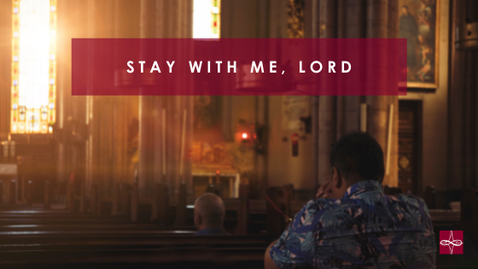
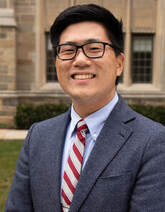
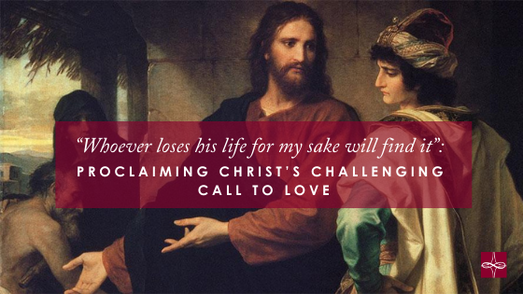

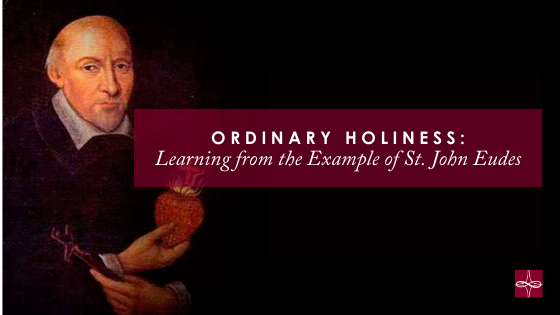
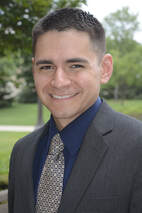
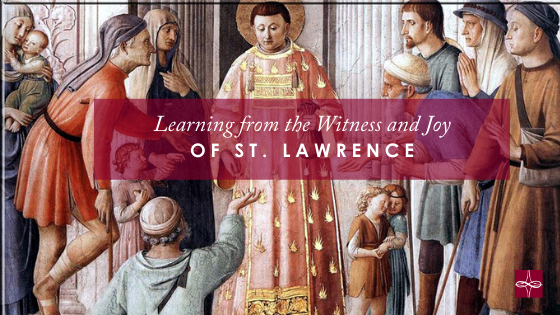


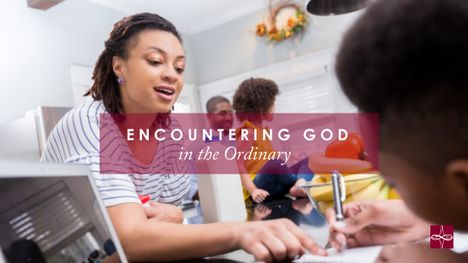

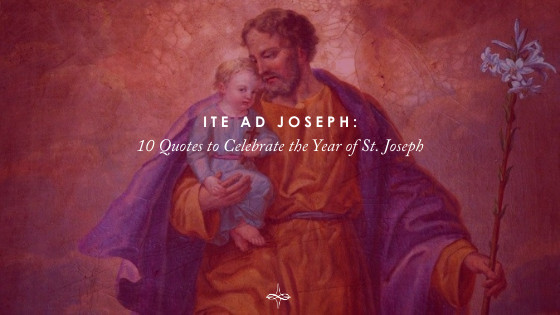

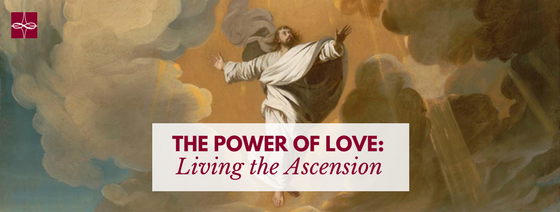

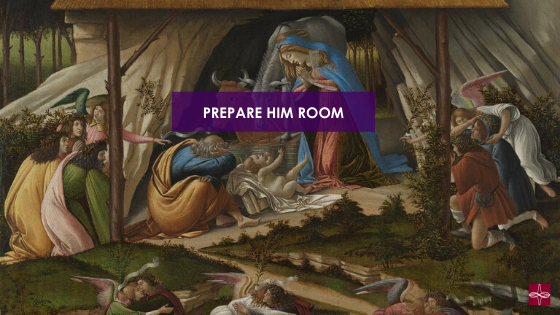

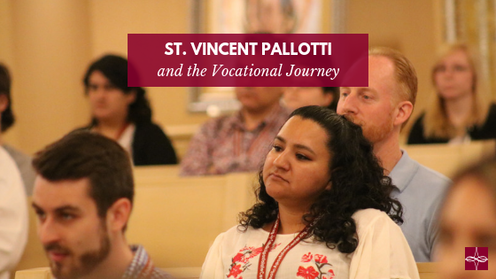

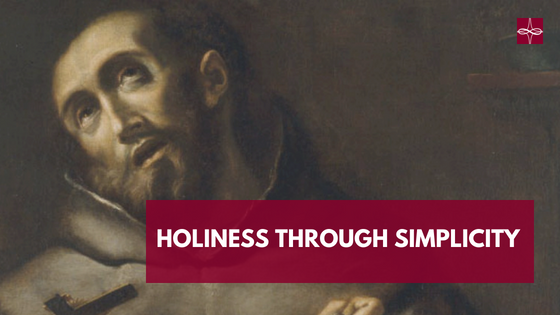

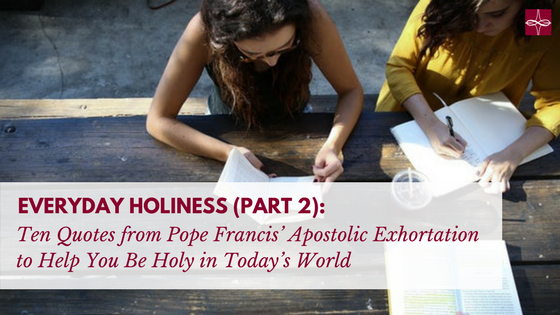

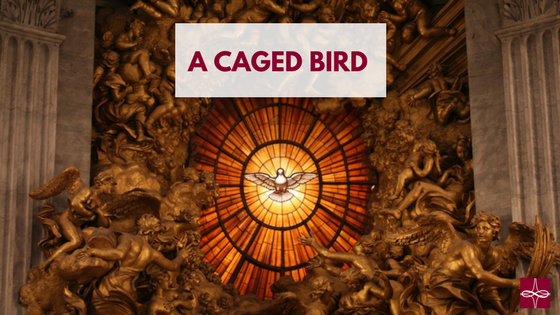

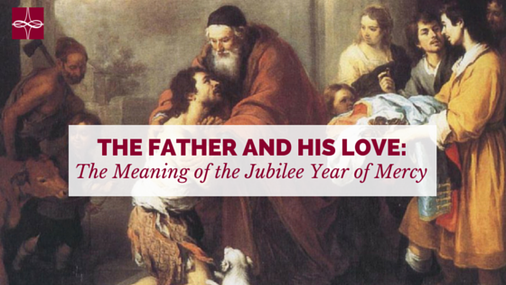


 RSS Feed
RSS Feed